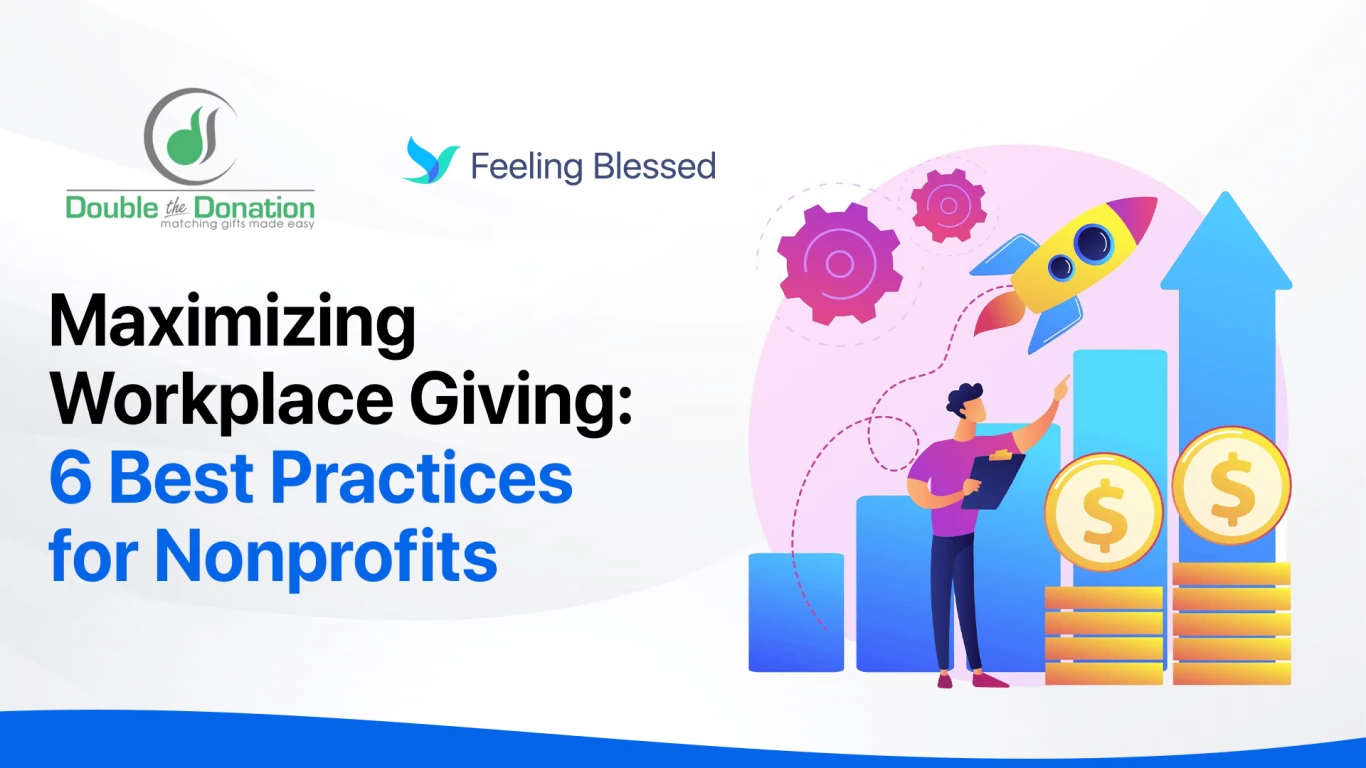Maximizing Workplace Giving: 6 Best Practices for Nonprofits


Workplace giving programs offer nonprofits an incredible opportunity to increase donations, build stronger corporate partnerships, and deepen relationships with employees who care about making a difference. However, many organizations are missing out on the full potential of these programs.
In this guide, we’ll explore six actionable strategies to help your nonprofit maximize workplace giving and unlock new sources of support from corporate partners and their employees. These include:
By implementing a few key best practices, your nonprofit can tap into this valuable resource and significantly boost your fundraising efforts. Let’s get started!
Many donors are unaware of the potential impact of workplace giving programs, which include matching gifts, volunteer grants, volunteer time off, and more. As a result, nonprofits should proactively educate their supporters about these opportunities to incentivize involvement and boost participation.
This can be done through targeted email campaigns, social media posts, and website content explaining how workplace giving works and why it’s important. Providing simple, step-by-step guides on how to check if their employer participates and how to enroll in the program can make the process more accessible overall. Showcasing success stories from donors who’ve utilized these programs can inspire others to take part, too.
There are tons of companies that offer workplace giving programs, and it can be difficult to keep track of all the opportunities your cause may qualify for. Fortunately, a workplace giving database tool helps nonprofits and their donors streamline the process of identifying companies that offer giving programs. These tools provide donors with easy access to company-specific details, including guidelines, deadlines, and forms required for matching gifts or payroll deductions.
You can even embed your database tool directly into your donation pages using your Feeling Blessed fundraising campaigns, too!
Matching gifts are an underutilized opportunity for nonprofits to increase their funding. However, many employees don’t realize that their donations can be doubled or tripled by their employers through matching gift programs. To capitalize on this, nonprofits should actively promote matching gift opportunities throughout their communications, such as email follow-ups after a donation, donation confirmation pages, and even during thank-you notes.
Encouraging donors to check their employer’s matching gift eligibility and providing clear, actionable instructions on how to request matching gifts can significantly boost participation. Following up with donors after their initial donation to remind them about this opportunity can ensure they complete the process.
Your volunteers’ time is already an invaluable resource for your organization. But did you know you may even be able to monetize their hours with corporate volunteer incentives?
Programs like volunteer grants allow companies to financially support nonprofits based on the volunteer hours their employees contribute. Meanwhile, other companies offer paid time off specifically for their employees to volunteer.
Nonprofits should inform volunteers about these programs and encourage them to submit their volunteer hours to their employers to unlock these additional incentives. Not only does this help generate more revenue, but it also deepens the volunteer’s commitment to the organization as they see their time making an even greater impact.
Building and nurturing strong relationships with corporate partners is essential for maximizing workplace giving opportunities. Why? Nonprofits can collaborate with companies to design tailored workplace and other giving programs that align with the company’s values and employee interests.
Engaging with companies through regular communication, joint events, or recognition of their contributions can help foster deeper partnerships. These partnerships often lead to increased participation in workplace giving programs, potential corporate sponsorships, and long-term commitments to support the nonprofit.
Measuring the success of workplace giving programs is critical for ongoing improvement and engagement. Nonprofits should track impactful metrics such as the number of donors participating in workplace giving, the total funds raised, and the companies contributing through these programs.
Reporting these outcomes back to corporate partners and the donor base can highlight the impact of workplace giving on the nonprofit’s mission. Publicly sharing these results—whether in an annual report or through a specific campaign update—demonstrates transparency and encourages continued participation. Furthermore, highlighting the collective impact of workplace giving can inspire other companies to offer similar programs.
~~~
Workplace giving programs present a powerful avenue for nonprofits to grow their donor base and increase funding. By following these six best practices—from raising awareness to reporting on impact—your nonprofit can maximize its impact through workplace giving.
With the right approach, you’ll not only secure more donations but also foster long-lasting relationships with companies and their employees.
Make workplace giving a central part of your fundraising strategy, and watch as your organization reaps the benefits of sustained corporate and employee support.
Check out our most popular blogs and resources.